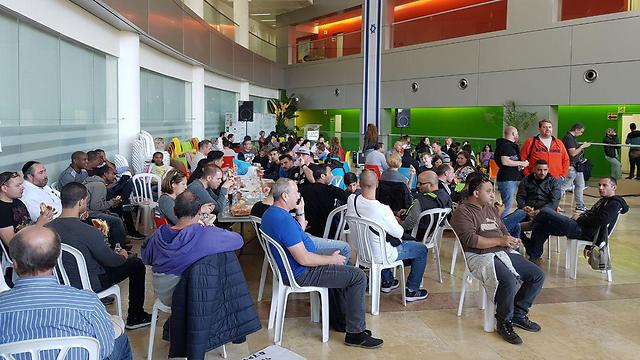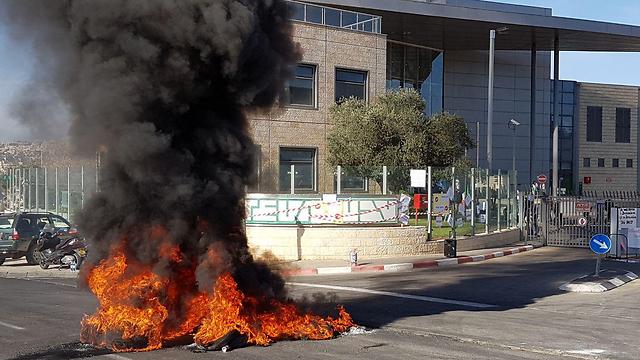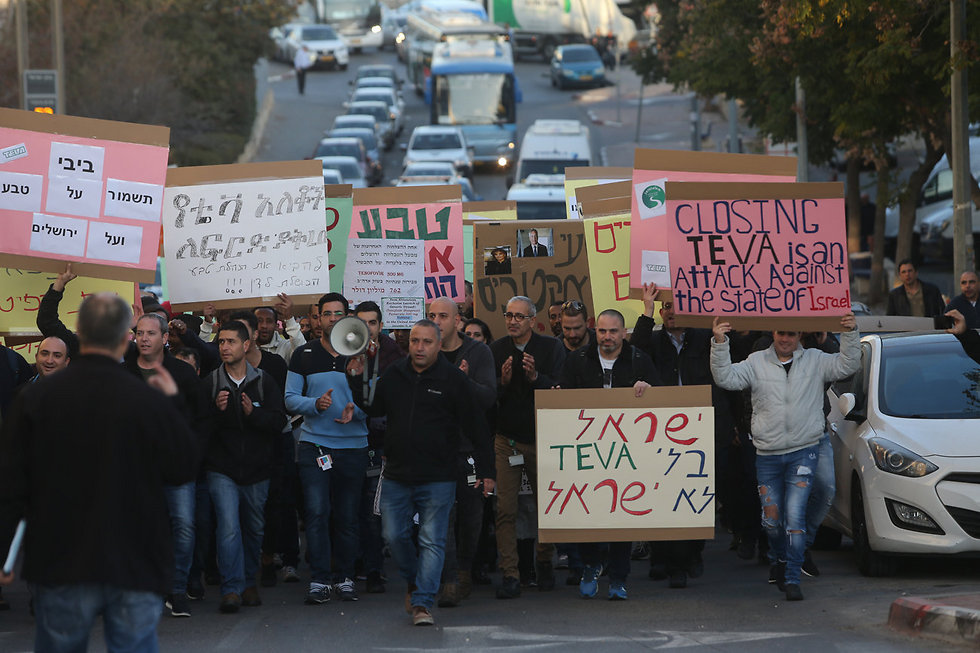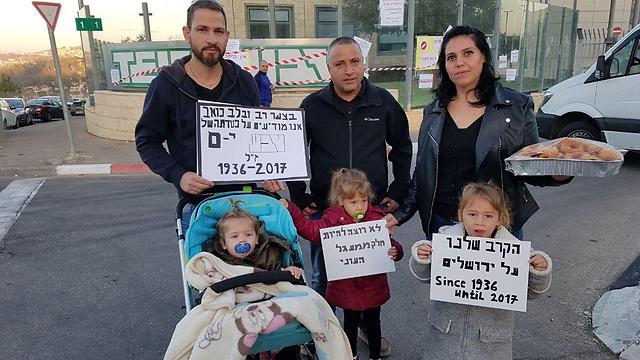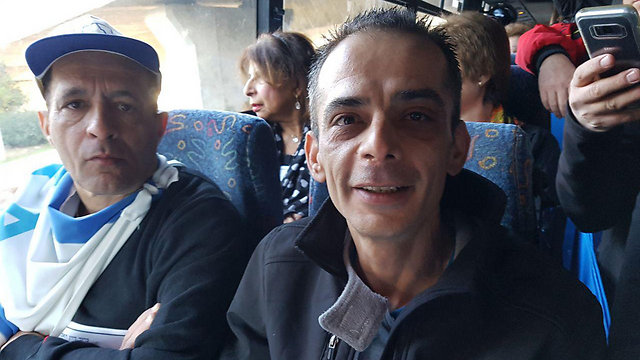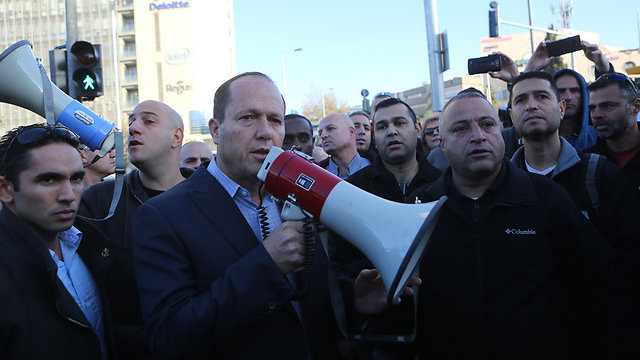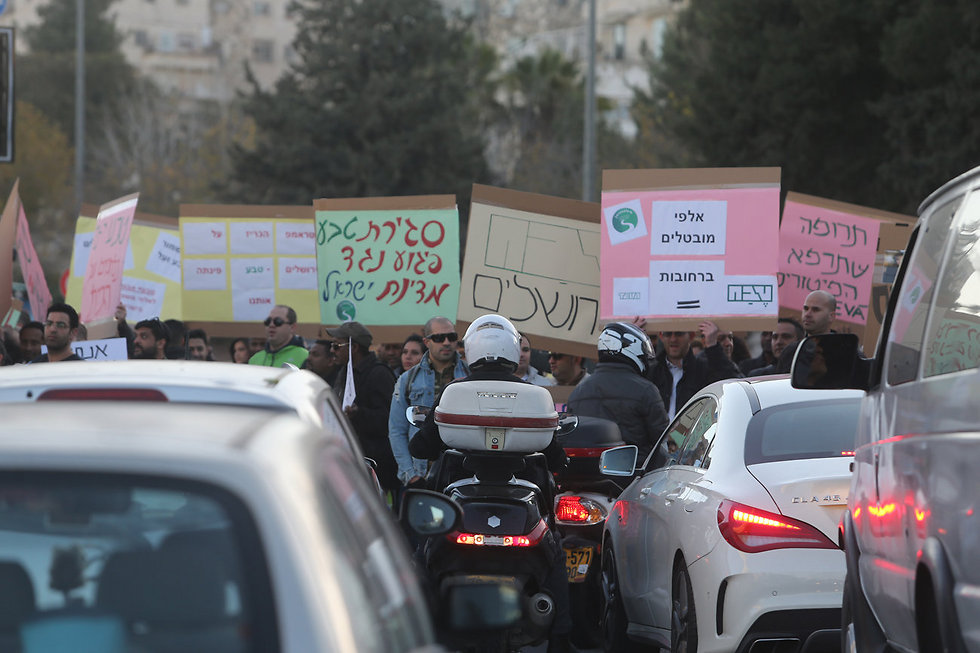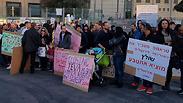

Jerusalem Teva employees protest layoffs, barricade in factory
Hundreds of the Israeli pharmaceutical juggernaut's employees blocked roads in the capital Sunday morning in protest of expected factory closures, mass layoffs, then blocked roads near Prime Minister's Office; in the afternoon employees barricaded themselves in the plant while others burned tires outside.
Chairman of the Teva factory's workers' union Itzik Ben Simon made good on the threat in the afternoon, with employees barricading in the plant. "We're at the beginning of the process and the struggle will continue. We're beginning to barricade," Ben Simon said.
"We'll also set up a protest tent outside. We'll let the women and children go at 4 pm and barricade until further notice. Only the prime minister can get the CEO and senior management out of the factory," the labor union chief said.
Prime Minister Benjamin Netanyahu did indeed comment on the Teva layoff affair in a cabinet meeting Sunday and said he intended to convene a meeting with the ministers of finance, economy welfare and environmental protection.
Netanyahu also asked Likud ministers to not operate or make statements on the matter without first coordinating their stance with the government's.
At the beginning of the cabinet meeting, Netanyahu said he will be meeting Teva's CEO with the ministers of finance and the economy.
"My first goal is to minimize damage to employees, my second is to prevent closure of the Jerusalem factory and my third to ensure that Teva remains an Israeli company," the prime minister said.
Demonstrations were also held Sunday in Teva factories in Ashdod, Kfar Saba, Petah Tikva and Netanya.
Lior and Mazi Kalimi both work in the Jerusalem factory and have two children. "We've had a difficult Shabbat. Two salaries, gone in an instant. We were thinking about what's to come and why did they do this to us all through Shabbat. We have nowhere else to go," they said.
Yair Hasson has been working as a Teva stockkeeper for the past 11 years. "I haven't slept a wink the entire Shabbat. I have nowhere else to go. The factory is our home. how can a company like Teva, who built all of its factories around the world on the backs of the Jerusalem factory, close up shop here?" he wondered.
"We're asking the prime minister and finance minister to intercede. These layoffs will become a problem for the entire economy," Hasson predicted.
Workers' union chairman Ben Simon chose to attack Jerusalem Mayor Nir Barkat. "He should be here. He shouldn't meet with senior management but be down here with us," he demanded.
Barkat did indeed arrive to the protest later, and asked employees to clear the road.
Ben Simon also begged famed former Teva CEO, the late Eli Hurvitz, for forgiveness. "His life's work was destroyed, and he's turning over in his grave. People of Jerusalem, we apologize for inconveniencing you. Please understand: we're dealing with the livelihood of 1,200 families," he appealed.
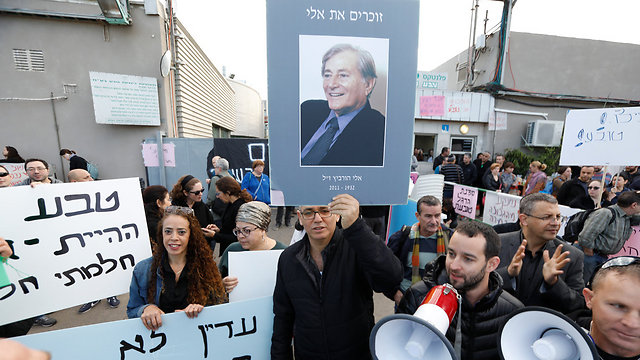
Nissan Agar, a driver stuck in a traffic jam created by the protest, admitted that he did sympathize with the Teva employees' plight. "But why do I have to suffer? It's become a regular thing now—one day it's the disabled, another day it's people who were fired, what's next?" he lamented.
Speaking on his plan to barricade in the factory, Ben Simon stated, "We have a long day and a long struggle ahead of us. We expect answers. If we don't get them, we'll barricade in the plant starting (Monday) and until we get some answers."
"We also intend to block central roads and junctions until we get those clear answers. We expect Finance Minister Kahlon, Economy Minister Eli Cohen and Prime Minister Benjamin Netanyahu to supply us with answers. We're dependant on government decisions. Our plant was shuttered for political reasons," he labor union chief said.
Alongside Teva employee protests in Jerusalem and elsewhere, the Histadrut labor union federation declared a four-hour general strike Sunday in protest of the expected layoffs of 1,700 of the company's employees.














